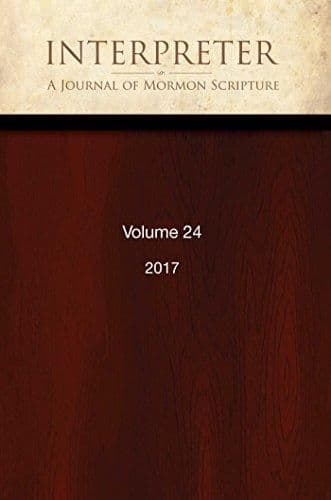Journal
An Essay on the One True Morality and the Principle of Freedom

Title
An Essay on the One True Morality and the Principle of Freedom
Publication Type
Journal Article
Year of Publication
2013
Authors
Sorenson, Alma Don (Primary)
Journal
Interpreter: A Journal of Latter-day Saint Faith and Scholarship
Pagination
1-47
Volume
7
Abstract
The author introduces the subject of the essay based on scripture by observing that one true morality governs the heavens and exists to govern mortality, which contains all possible ways to live in time and eternity and orders them into a hierarchy of rational preferability. In order to live their endless lives with enduring purpose and fullness, humankind must undertake two stages of probationary preparation, one as premortals and one that begins with mortality and concludes in the post-mortal world with the final judgment, in which they come to know for themselves the one morality and accept its ordering of the many never-ending ways of life and hence the ways they have proven themselves willing to receive. With that introduction in mind, in the next two sections of the essay the author explores what some latter-day scripture reveals about the moral facts that make possible knowledge of the one morality, about how humankind determines good from bad ways to live as they undertake the second stage of probationary preparation, about how they can come to a knowledge of the best way of life contained in that morality, and how in the end they have a perfect knowledge of it. In the final section of the essay, the author investigates how it was that in the premortal world the hosts of heaven, knowing and accepting as they did the one true morality, nevertheless became deeply divided over two incompatible plans of salvation as they prepared for moral life and went to war over them. A major theme of the essay is that the one morality, and every way to live it contains, center on persons becoming and living as agents unto themselves. The upshot is that the principle of freedom, which prescribes the full collective and personal realization of human agency and which belongs to all humankind at every stage of their endless existence, is the fundamental principle of that eternal morality.
Subject Keywords
Bibliographic Citation
Terms of use
Items in the BMC Archive are made publicly available for non-commercial, private use. Inclusion within the BMC Archive does not imply endorsement. Items do not represent the official views of The Church of Jesus Christ of Latter-day Saints or of Book of Mormon Central.